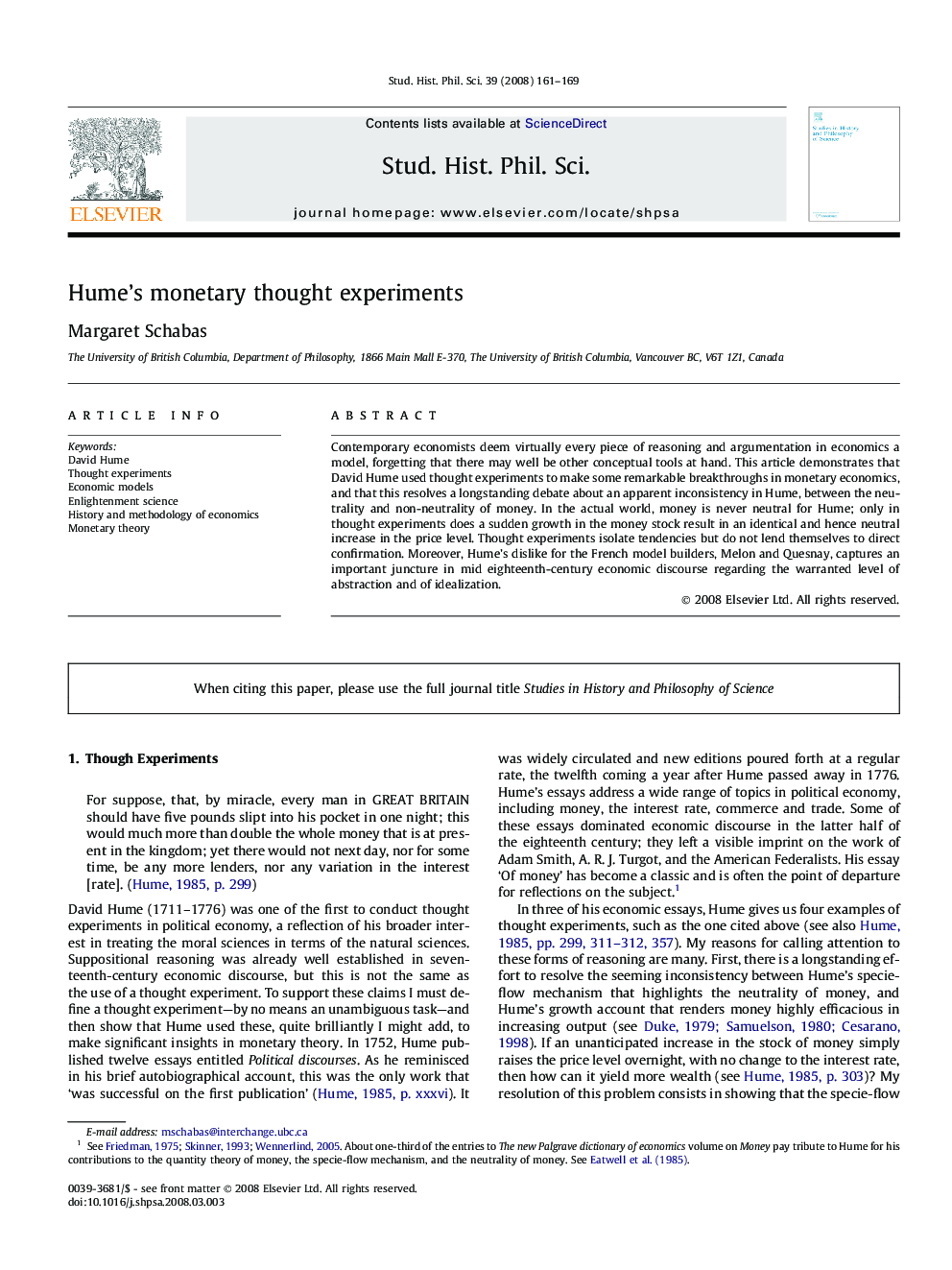| Article ID | Journal | Published Year | Pages | File Type |
|---|---|---|---|---|
| 1160812 | Studies in History and Philosophy of Science Part A | 2008 | 9 Pages |
Contemporary economists deem virtually every piece of reasoning and argumentation in economics a model, forgetting that there may well be other conceptual tools at hand. This article demonstrates that David Hume used thought experiments to make some remarkable breakthroughs in monetary economics, and that this resolves a longstanding debate about an apparent inconsistency in Hume, between the neutrality and non-neutrality of money. In the actual world, money is never neutral for Hume; only in thought experiments does a sudden growth in the money stock result in an identical and hence neutral increase in the price level. Thought experiments isolate tendencies but do not lend themselves to direct confirmation. Moreover, Hume’s dislike for the French model builders, Melon and Quesnay, captures an important juncture in mid eighteenth-century economic discourse regarding the warranted level of abstraction and of idealization.
